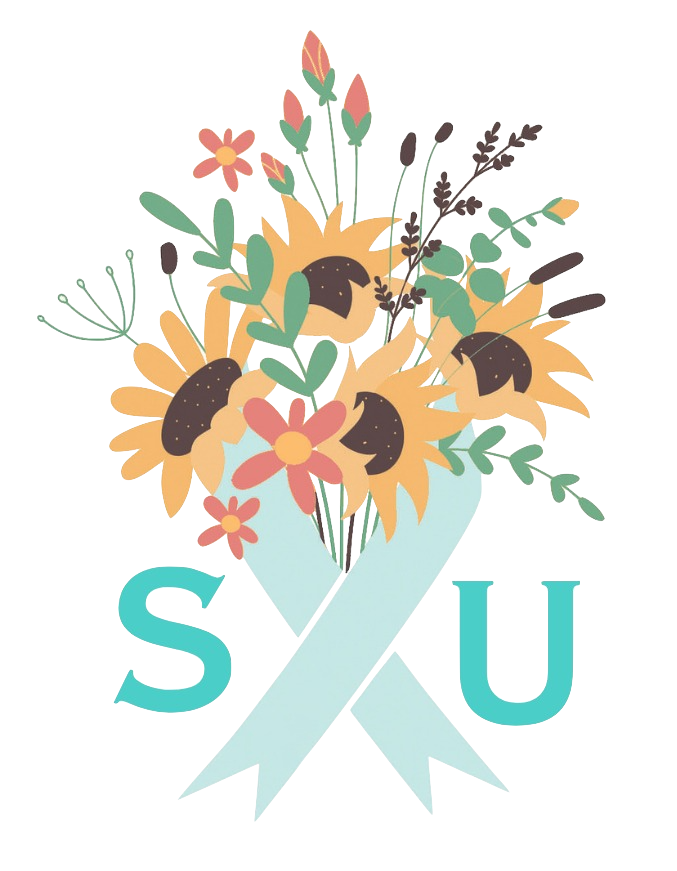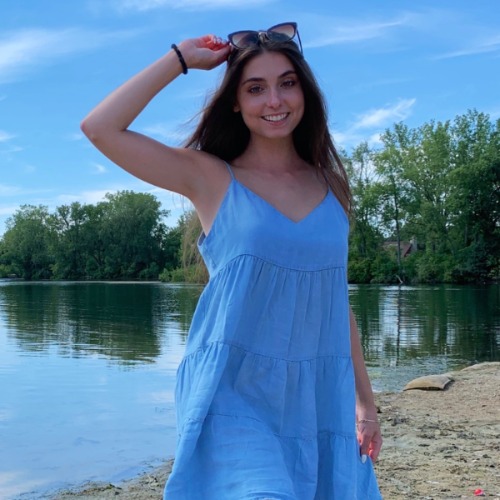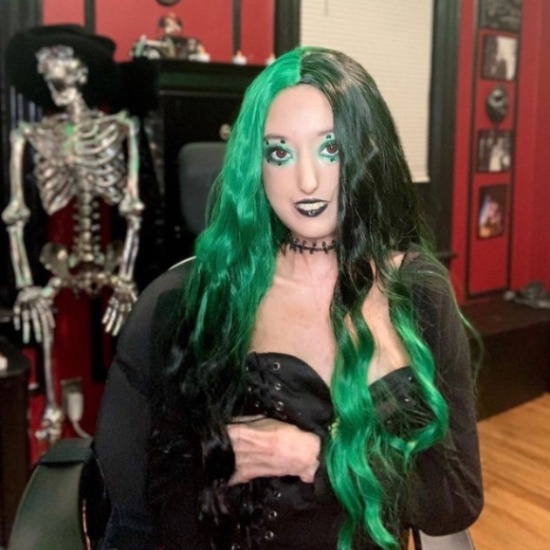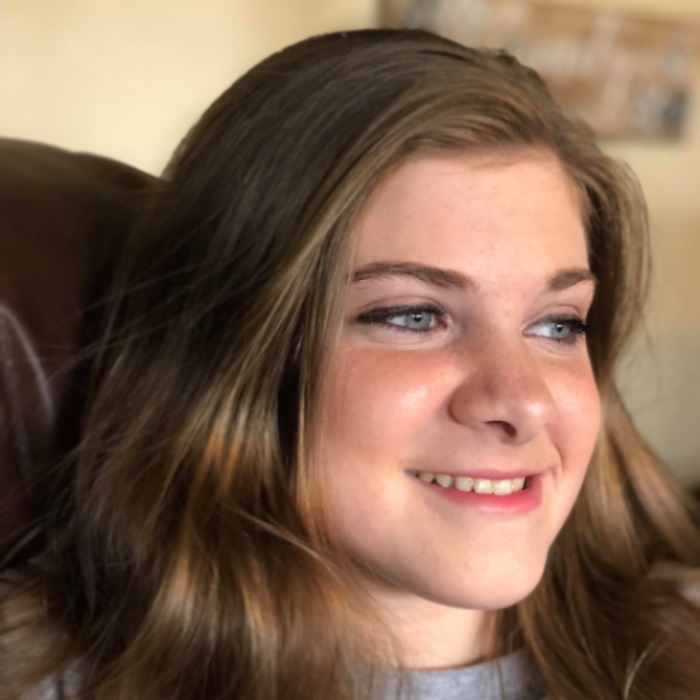Georgia (United States)
KIMBERLY GONZALEZ
Scleroderma Stories Issue 2

Please introduce yourself
I live in Georgia. I have one sister and two parents, and I have a little dog named Draco. My hobbies are walking to the park, working out, hanging out with friends, and going out to eat or watch movies.
When were you diagnosed with scleroderma, and how did you react?
At the age of 8, I went to a lake and came out purple. I went to the doctor, and they misdiagnosed me with arthritis. For four years, I was on the wrong medication. My mom noticed that the medication wasn’t doing anything, and I was getting a lot worse. She did some research, and that’s when, at the age of 12, I was correctly diagnosed with Raynaud’s with scleroderma.
I was very young, and I grew up with my sickness, so I technically didn’t really feel the change. But, I would get tired in school when I would have to do the mile run. It was very difficult, and the coaches didn’t understand why, and neither did I, but I would get exhausted very fast. In middle school, I started getting some open wounds on my elbows, so I had to tell my orchestra teacher that sometimes I couldn’t play because my fingertips or elbows were hurting a lot.
Did you have friends or teachers that understood your disease and what you were going through when you were younger?
Growing up, I had a lot of doctor appointments. In my high school years, I had to get all the teachers and counselors together to tell them that there would be a few weeks out of the days that I couldn’t come to school due to me having to go to my doctors appointments. So they were okay with me sometimes not attending school. They would give me an extra day to turn projects in, or we would figure out how to do school from the house.
I only shared my sickness with my immediate family up until my stroke, when I could longer hide it. I opened up to all my friends and a lot of my family. They had no idea what I was going through because they only saw me when I felt good. They never saw the hardships until I had my stroke. Everyone was okay with it, thankfully. They just needed to check up on me and learn how to be very patient with me.
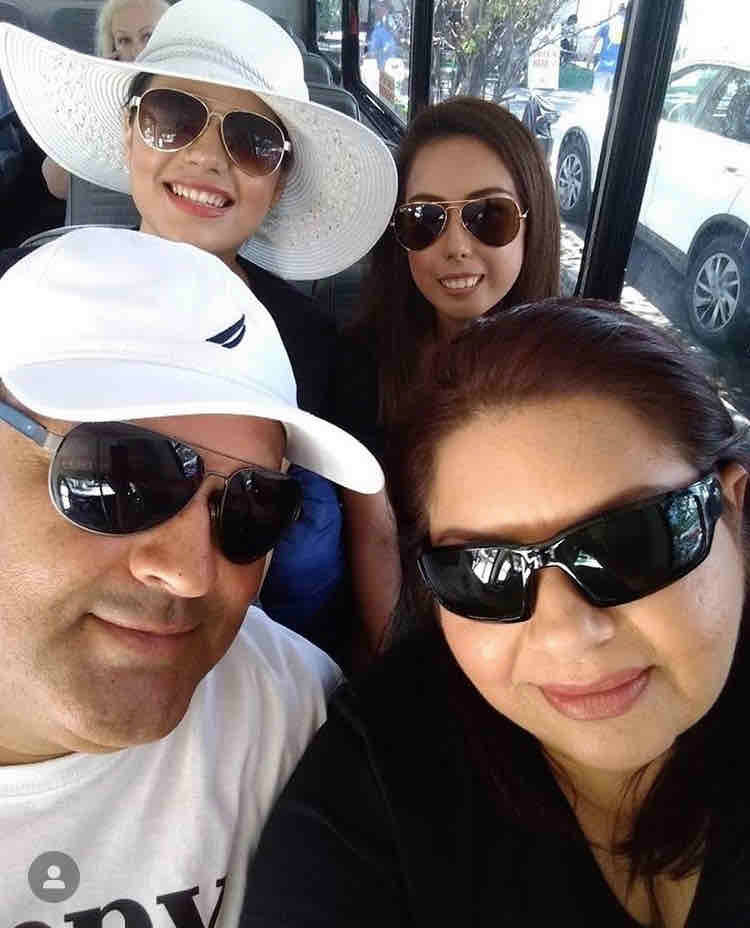
Was there a certain point where you started to actively learn more about scleroderma?
From 12 to 15, it was kind of learning throughout. As my condition worsened in my junior year of high school, when I lost my first fingertip, I had to do a lot more research because that’s when I realized that my condition can worsen throughout the years, and it certainly did.
Have you had to make any adjustments to accommodate for your scleroderma?
Definitely. Two years ago, I was diagnosed with APS*, which led to me having a stroke. So during the recovery, it was hard for me to work out. I was in a wheelchair for nine months, I had to practice how to walk again, and stuff like that.
*APS stands for antiphospholipid syndrome
As far as eating, I now have to use a special utensil to eat because of the harshness of using a spoon or a fork. They can create ulcers, which can cause my scleroderma to flare up. I also don’t drive anymore. I depend on my sister to drive me to my doctor appointments.
After I had my stroke two years ago, my family has fully 100% taken care of me. For example, I can no longer make my meals or shower by myself. I fully depend on them.
As for moments that I couldn’t do something because of my scleroderma, I could never go ziplining due to me losing breath or not having enough grip. But, two years ago, I convinced my parents after my stroke that like, “hey, I could die, and I want to do everything” so we went to Costa Rica, and I ziplined for the first time with help. It took me 20 minutes longer to get to the point to zipline, but I did it. It was one of them, it was on my bucket list and I did it!

What would you say is the scariest part of living with scleroderma?
The scariest part of living with scleroderma, for me, is how the disease can basically change you 100%. And, I never know if my internal organs will be affected by scleroderma. Thankfully, up until now, they haven’t. But, due to the medication that I have to take, there is the risk that my kidneys could fail.
I’m scared that I am not going to live past 35.
Scleroderma makes working difficult. I would love to be able to make more, because I mean no one can survive on a few hundred dollars every month.
Also, given that the doctor never said I could not have kids, I’m scared that if I do want to have a child someday, how am I going to support him or her? I know that my sickness most likely won’t be passed down to my child, but it is more likely for my child to get it. I am scared for that as well.
Do you think having scleroderma has affected the way you approach life or new things?
Yes, growing up, I didn’t really want to feel different, so I would try to be as normal as possible, or at least what I thought was normal at the time.
I used to, for the longest time, be really sad about my appearance because my skin couldn’t stretch like everyone else’s. The way my lips started shrinking really affected my confidence. But now, after I had the stroke, it gave me a new way of life, especially in the way that I think. People are going to accept me whether they like me or not. I mean, this is who I am, there’s no point in hiding it. So, I kind of just take life as it goes.
With the family support and my friends, never making me feel like a burden. Growing up though, I did feel very different and lacked confidence up until three years ago, when I fully started to love myself and fully accepted what my life and my new normal was going to be.
I actually had two strokes, back to back, because of the APS. After my second stroke, I was like you know what, I’m here for a reason. God did not let me die, so I might as well start living my life and loving myself because at any moment it can be taken away from you.
And I mean, honestly, it was just the thinking in the way that after seeing my parents in the restroom crying because you know, you don’t realize how fast your life can change. You really have to learn how to appreciate every little thing. It was kind of just like a wake up call for me.
What medications have you taken, or what treatments have you done?
I have to take prednisone, but that’s been a very difficult medication to control because it is a steroid. I always have to go to check ups to make sure that I am in the correct weight, so I am not underweight or overweight for my age.
I take gabapentin for nerve pain, even though it does nothing for me.
The new medication that they do have to check regularly is the warfarin, a blood thinner. I’m taking warfarin because of my APS. Due to that medication, I have to be on a low green diet, and I have to get my blood work checked once a month.
A new therapy that I am on right now is hyperbaric oxygen therapy, which is supposed to help me heal my wounds faster as it creates more oxygen. As a result of this therapy, I’ve noticed that my skin is less dry and way more stretchy, and my wounds also heal better. Due to the scleroderma, I used to have to use white patches on my hand, and I’ve seen those start to go away. It did take a while to get this oxygen therapy approved from the Medicaid because it was like $5,000 every session.
Also, my family and I, growing up really did try to look for other solutions versus just taking 20 pills. We’ve gone to other countries to learn about natural medication, and we tried a lot of different things. Sadly, they would only help me for a few months.
At the end of the day, it is what it is. I still have this sickness, and I just have to learn to control it.
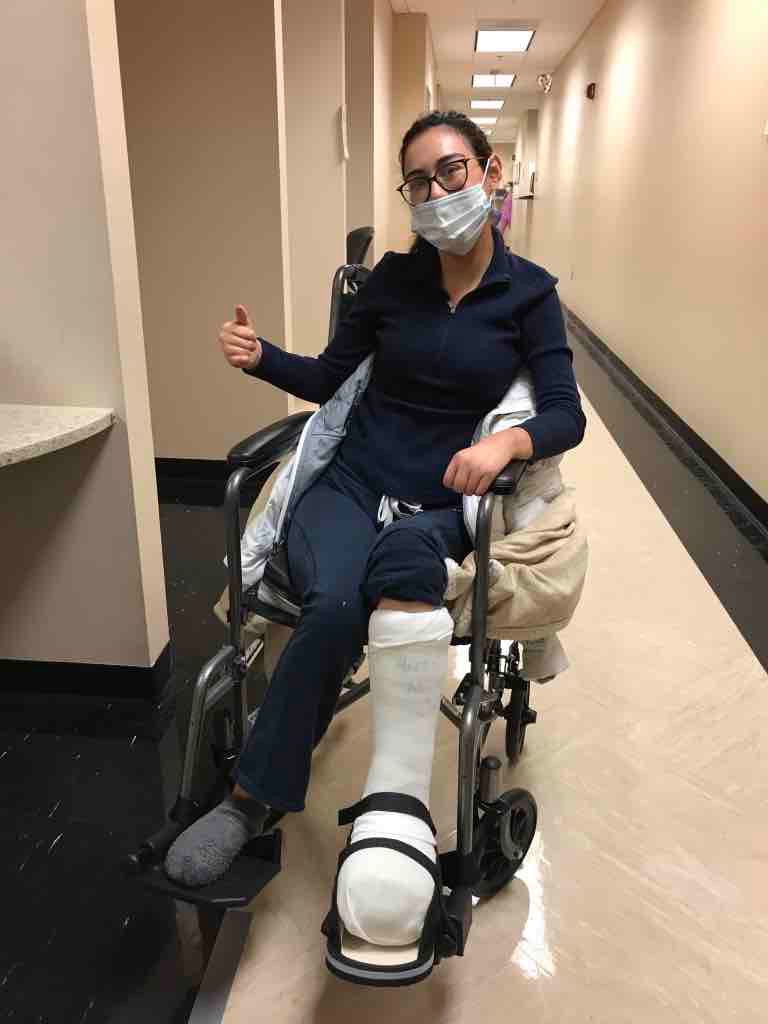
Have you met anyone else with scleroderma?
No, it does not run in my family. I was just the lucky one. I have seen people with scleroderma online, but I haven’t met anyone personally.
Through my Instagram community, I have made friends living with scleroderma. It made me not feel so alone because they understand what it’s like to live with scleroderma.
Do you have any goals or dreams for the future?
Yes, I really would love to travel a lot more and share my story. You know, to let people know that, even though maybe growing up it can be very different, even though you live a totally different life, you can still do everything that you want. You’ll just have to take a different path to it, but you can still do it.
I just really want to help inspire and motivate people. Growing up, autoimmune disease was not as common as it is now. Just growing up with that was difficult, but never be afraid to be yourself.
@strong_selflove
I started the Instagram page @strong_selflove, and that has really helped me. I would be more than happy to let everyone know that my DM’s are open, and that I am there for them, because I had no one to look to growing up.
There’s always another option for you. Whether or not you have family or friends that can support you, there is always my community, and there is the autoimmune community.
Be sure to follow us on Instagram and Facebook (@sclerounited) to see more scleroderma warriors’ journeys in our weekly Sclero Sunday series.
Are you a scleroderma warrior? We’d love to interview you for Scleroderma Stories! Please visit tinyurl.com/share-my-sclero-story or email us at contact@sclerounited.us
